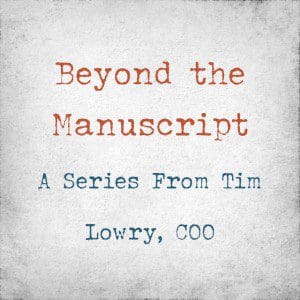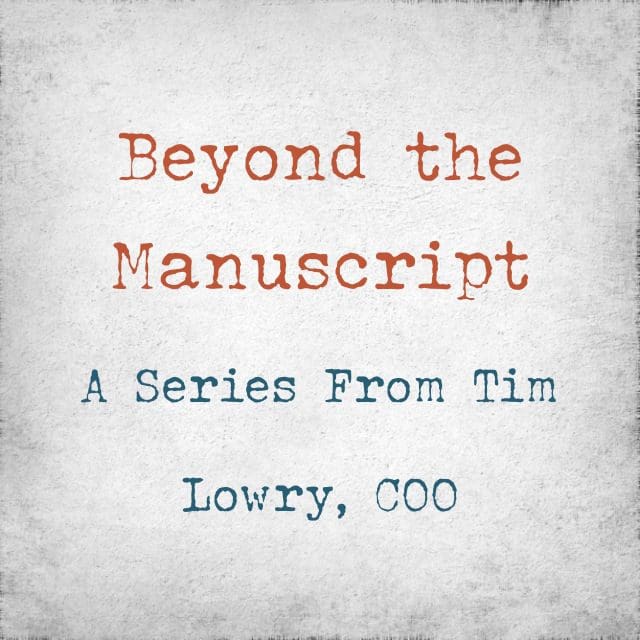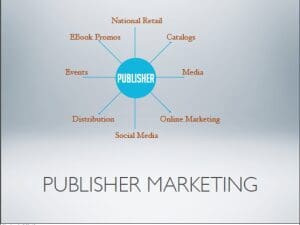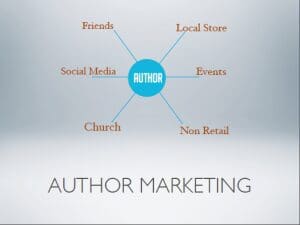 Over the span of six weeks Ambassador COO Tim Lowry will be sharing a series he calls “Beyond the Manuscript.” Whether you’re a new or seasoned author we hope you’ll find this material helpful:
Over the span of six weeks Ambassador COO Tim Lowry will be sharing a series he calls “Beyond the Manuscript.” Whether you’re a new or seasoned author we hope you’ll find this material helpful:
- Week 1: Author and publisher marketing
- Week 2: Creating a platform
- Week 3: Building your fan base
- Week 4: Developing your product launch plan
- Week 5: How to organize a successful signing
- Week 6: Engaging media on a local and national level
This week we’re going to take a look at building your fan base as you write. If you have followed the steps previously laid out you should have your social home bases in place, now you have to put them into action.
Start by connecting! Seems obvious however some people feel that by just having an online profile followers will just drop into place without any work. You will want to reach out to friends, family, and fellow writers inviting them to connect with you, invite your contacts across from your personal page to your fan page. Friend, Like, Follow, join Circles. Think of how you network at a business or social gathering. This is exactly the same thing you’re just doing it online.
Once connected:
Bring your fans on the journey with you. If you are a fiction writer this can be as easy as teasing excerpts, or inviting followers to share feedback on characters or a part of the story you’re having trouble developing. This involvement lets fans feel like they are part of the action.
Guest blog, share about your writing experience, the highs and lows, the search for an agent or publisher, perhaps you want to take a little extra time to build added content for sharing outside your book. This could be creating sub-stories for characters outside of the main storyline or creating interviews and back stories with the fictional characters. This all allows readers to build a connection. Be sure your activities connect back to your home base, your website. Include your link everywhere you can.
We’ve briefly mentioned promo videos over the last two weeks. A promo video can be as simple as a still graphic displaying the book title and you reading a gripping excerpt in the background for 90 seconds or a more developed video such as the trailer for A Time To Heal below that showcases the title beautifully.
Any readers that frequent our site or social media may have seen us promoting Google+ Hangouts with our authors. This is one of the biggest tools that Google+ offers that is set apart from the other social media sites and personally I think it is brilliant! If you’ve never taken part in a Google+ Hangout or seen one you can follow this link to see a recent Google+ Hangout we did in partnership with our friends at Gospelebooks.net to promote Peter Hubbard’s latest title Love Into Light. With the right partnerships and pre-marketing a Google+ Hangout can bring you many new followers and sales of your book.
In putting the above tips into practice you will see your fan base grow. It is important to keep your posts frequent but they don’t need to be all about you or your book. A good balance is 70/30, 70% interaction and sharing material not related to your book, 30% promotion and selling of your material. Be aware of your time on social media, I’ve heard frequently from authors that hours just melt away once they get on Facebook. If you’re working on a deadline for publication be wise with your time online. Use tools like Hootsuite to efficiently schedule your posts across all your social media platforms.
Next week we’re going to be looking at developing your product launch plan. Your launch plan will help you put all your tools to work.
What is your biggest struggle with using social media? Have you found anything that works for you?







 For the last number of years I’ve been attending writers’ conferences across the Southeast as a publisher and enjoyed meeting with perspective authors, as I attended these conferences I found a common thread that many authors although they perhaps had good manuscripts had no real grasp on how to market their book or what to do next.
For the last number of years I’ve been attending writers’ conferences across the Southeast as a publisher and enjoyed meeting with perspective authors, as I attended these conferences I found a common thread that many authors although they perhaps had good manuscripts had no real grasp on how to market their book or what to do next.
